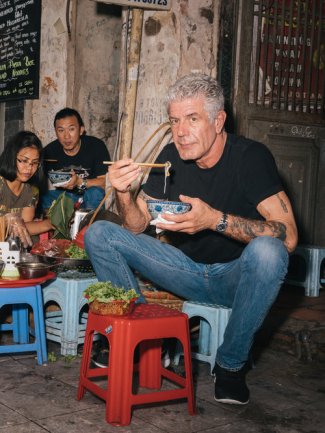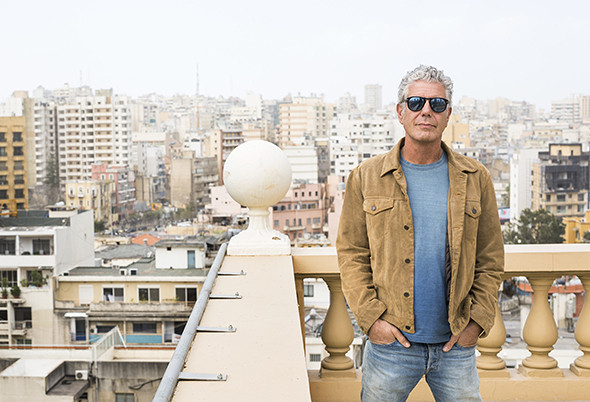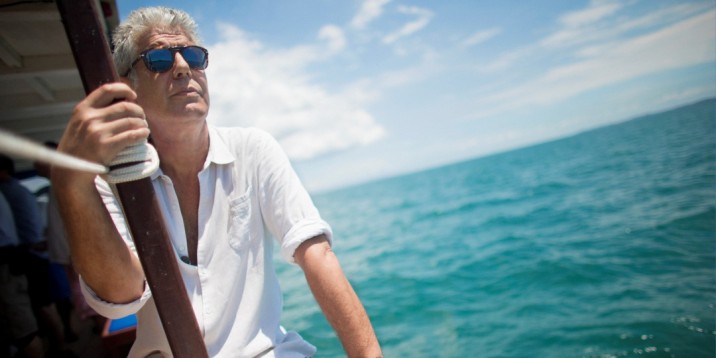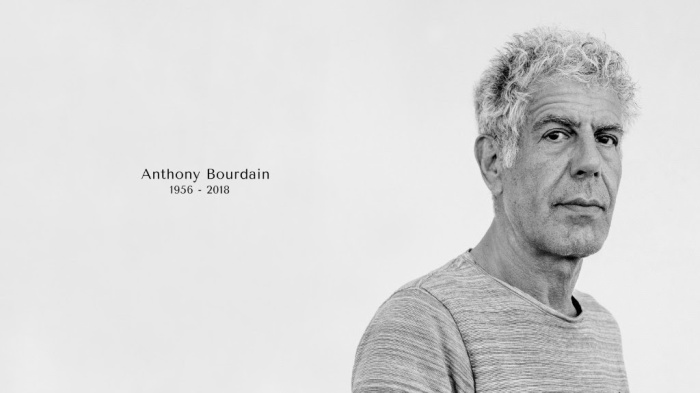“Travel isn’t always pretty. It isn’t always comfortable. Sometimes it hurts, it even breaks your heart. But that’s OK. The journey changes you; it should change you… You take something with you. Hopefully, you leave something good behind.”
— Anthony Bourdain
I had everything to gain from wanting to travel as a kid. In a small town like mine, the prospect of venturing out into a world I didn’t understand — meeting unfamiliar people, experiencing unpredictable places, and throwing oneself into new adventures — was something that only happened in the movies or magazines.

My trip across the ocean changed all that. It helped change me and my vision of making the world better, or as much as I could. It also introduced me to the beautiful melancholy and wanderlust that travel provides, and when allowed it still washes over my soul like a warm shower in the middle of winter, never quite letting me forget there is still more to do — more people to meet, food to savor or abhor, adventures packed into a life I was only just beginning. I wanted to get lost forever; graduate college and throw myself out into the world, at least for the time it took to see all of it. Name the continent, a city, every micro-journey along the way — I wanted to find it, see it, feel it, taste it.
It never happened, of course. College came and went, real life intervened. I found my own micro-adventures in Seattle. Loves came and went, next to my work in an industry that didn’t even exist when I graduated college. I was even flown to the Big Apple to try out for a reality show on CBS. In the end, no job, no urban adventure can beat getting lost in the streets of Venice, Italy, or getting trapped in the steel girders of the Eiffel Tower after hours. Kind of hard to live up to.
But Anthony Bourdain was that second chance. The career line cook-turned celebrity chef with the forked tongue showed us that even in the stretch-run of life dreams can still come true, even for a 44 year-old burnout who’d snorted more coke, mainlined more heroin, and burned more bridges than all the cities he’s traveled, combined.
“I looked in the mirror at that time and I saw someone worth saving, or that I wanted to at least try real hard to save.”
His story is one of survival, ironically. Once thrown into the the high-pressure life of a line cook out of high school, the all too-common method of coping was drugs. Heroin, crack, methadone — nothing was off-limits in the pressure-cooker that is the New York restaurant business. From that first bag of heroin on the street corner of Rivington & Bowery in 1980 to being that lonely one in four who actually kicked addiction and stayed off, Bourdain finally saw his future for what it could be — a future that didn’t end at 30.
What followed was one of the great out-of-nowhere stories pop culture has seen in this early 21st century. His New Yorker article Don’t Eat Before Reading This in 1999 and follow-up book Kitchen Confidential in 2000 ushered in a new era of the celebrity TV chef-host — except as opposed to other, more food-centric TV shows, the magic didn’t focus solely on the food. Bourdain needed more.

His stroke of genius in pairing food and travel together had never been done on such a level. More explorer than food critic, Bourdain took his A Cook’s Tour, No Reservations, and Parts Unknown crews around the world to visit cities, regions, and nations the majority of us never will, trying unique cuisine many would never try but were happy to witness. From fetal duck eggs to bull penis and on, we were able to experience the world through the eyes of a man who knew no limits on a planet with an infinite number of experiences. And we got to go along for the ride.
Every episode of every season, Anthony Bourdain gave me that feeling of adventure and discovery like few before him, “edu-taining” us with an inquisitive style that asked questions only he could with the respect his hosts deserved, in front of and behind the camera. There have been multiple accounts of guests being awed by Bourdain’s thoughtfulness and consideration for the subjects he was interviewing, areas his crew was “infesting” while filming, and most of all the knowledge he brought in representing their city, region, or country to the world through his TV show.
It’s for reasons like the above I don’t really understand the furor and hate he’d received upon achieving fame. A lot of fans and the media always called him “the bad boy” of TV food, but I never saw it. He might have talked a little shit with Guy Fieri and others, but in the end he was just communicating his opinion the way a New York City line cook would — unabashed, unashamed, and unguarded. What would you expect from a Jersey boy-gone-gritty line cook in big bad NYC? The only difference is everyone was watching, listening, and paying detailed attention.
In this day and age of brainless and bigoted Trumpism contrasted sharply with insta-trigger-happy outrage culture, Bourdain TV is not simply what the world needs but outright requires. With a movement centered on nationalism-gone-pathological if not pseudo-Nazi-white nationalist, Bourdain showed the world in all its multi-hued, multi-cultural, many-flavored, and unlimited understanding and beauty. He was a walking road map in how to establish relationships with people and cultures unfamiliar to him and his viewers, sit down with those unlike anyone he grew up with, and LEARN who they are, how they got to where they were, and where they as a people wanted to go. Such cultural insights are exactly what America needs right now, at one of the most pivotal points in our country’s history. Bourdain’s death could not have come at a worse time, but that’s not how this works, unfortunately.

Success gets in the way like that; not even the “best job in the world” (his words), a girlfriend he adored immensely, and the unconditional love of a young daughter could stop the demons swirling in his head. Depression doesn’t just go away with therapy; a living monster, it’s an infestation of the soul that even with constant attention one can only hold at bay. Together with years of drug use, two divorces, and a nine-month production schedule that dragged him to all points on the compass, it’s now obvious Bourdain was struggling.
The one question I found myself asking in the days after his death — after seeing the outpouring of sorrow from a world’s worth of admirers, contemporaries, and family members — would Bourdain have done what he did had he known what he meant to so many? A part of me feels he knew. At that point, that particular night, his life was so dark he just didn’t care anymore. That’s what the monster does. It shoves the sorrow or numbness so deep you can’t see the light anymore.
In the end, we still had so much to see from Anthony Bourdain; so many more years of “edu-tainment” to be had, cultures to explore and learn from, and people to meet. He was the Pied Pieper of culinary travel, but with a healthy dollop of attitude, opinion, and rugged wisdom rather than a flute, simultaneously walking us through a visual road map of “how to live your best life.” It seemed he had everything you’d ever think you’d need; love, family, travel, financial security, and the “best job in the world.”
I suppose if there’s one last thing Anthony Bourdain taught me it’s that peace of mind is the only true currency. I’m not there yet, but I’m damn well focused on finding it, grabbing it by the nose, and never letting go.
If you find yourself struggling with depression and/or suicidal thoughts, please call the National Suicide Prevention Lifeline at 1-800-273-8255.
